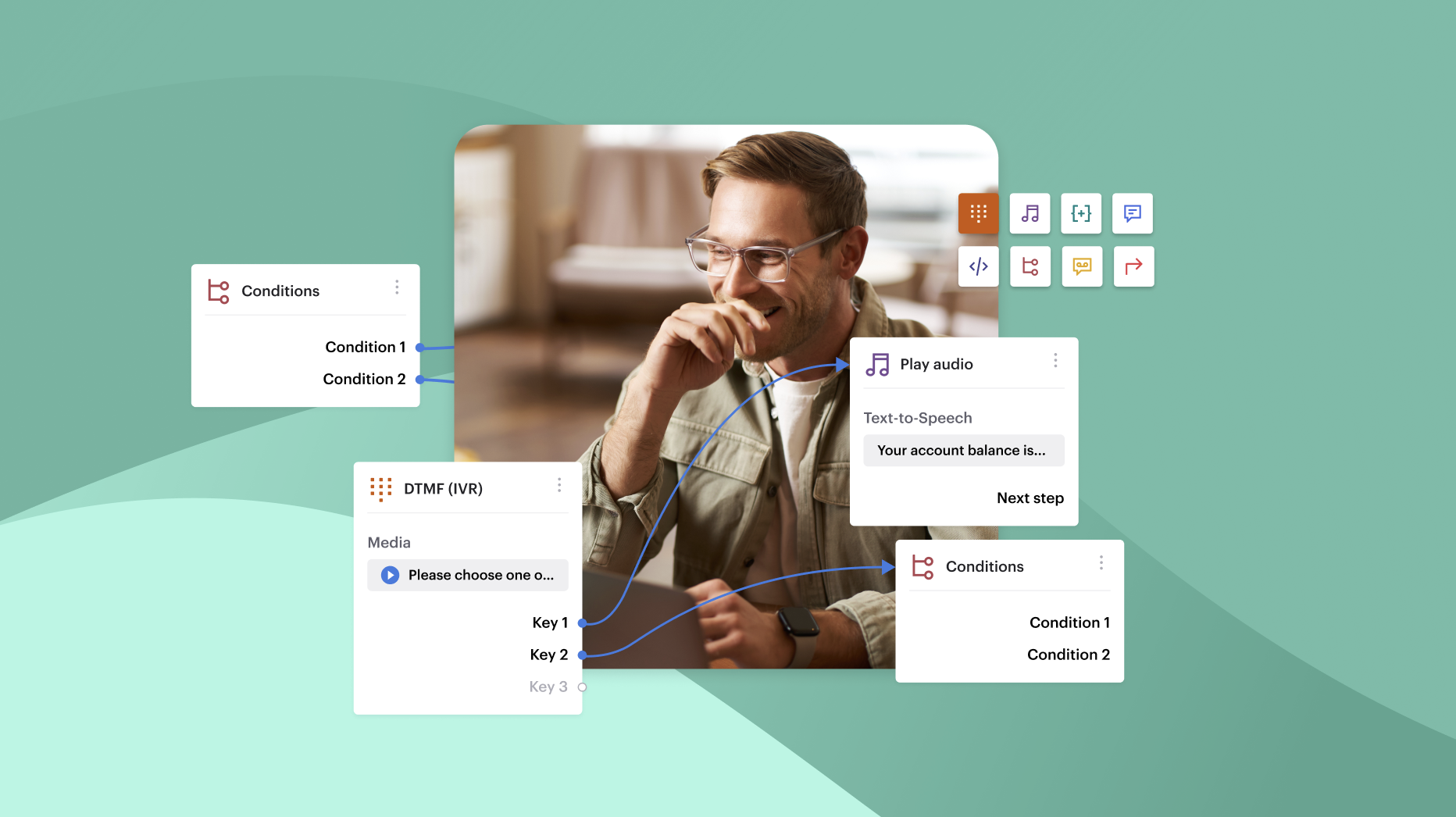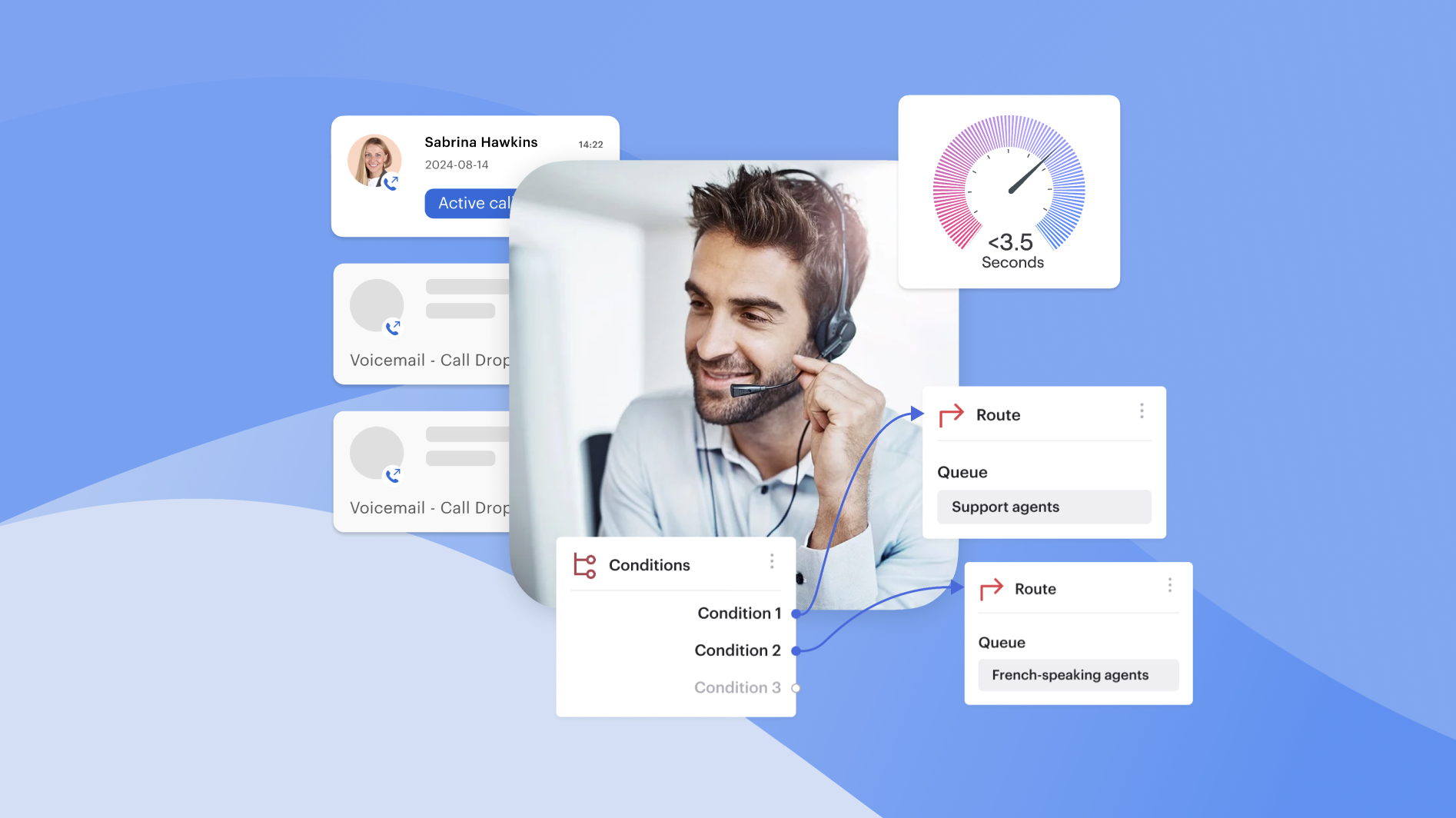Privacy-enhancing technologies are rapidly gaining traction, with annual growth rates estimated to be between 15-25% due to increased data privacy awareness and stringent regulations like GDPR and HIPAA.
For contact centers, phone number masking is a key privacy measure that protects personal data during calls. By using temporary or proxy numbers to route calls, phone number masking anonymizes communication between parties, keeping sensitive information secure. This technology not only supports compliance with data protection laws but also enhances customer trust by safeguarding private contact details.
As more companies adopt phone number masking to mitigate risks and improve customer service, understanding its benefits and applications becomes essential.
Takeaways
- Phone number masking anonymizes communication by substituting real numbers with temporary or proxy numbers, safeguarding personal data and enhancing privacy.
- The technology works through proxy servers, temporary number allocation, SIP protocols, dual-channel encryption, API integration, and compliance mechanisms to ensure secure, seamless communication.
- Common use cases include ride-sharing, e-commerce and delivery, healthcare and telemedicine, call centers, marketplaces, and financial services, where privacy and regulatory compliance are critical.
- Key benefits include protecting privacy, enhancing security, building customer trust, centralizing communication management, supporting compliance, facilitating dispute resolution, preventing unwanted contact, and improving customer experience.
- Implementation challenges include integrating with existing systems, maintaining call quality, managing temporary numbers and records, cost considerations, and training agents to use the system effectively.
- Future trends involve AI-driven anonymization, blockchain integration, enhanced customer experiences, stronger compliance features, omni-channel masking, cloud-based solutions, and increased adoption in emerging markets.
- Masked number formats allow temporary use for interactions, enabling follow-ups without exposing real numbers, while preserving call recording and compliance with regulations like GDPR and PCI DSS.
- Overall, phone number masking strengthens trust, secures sensitive data, ensures regulatory compliance, and improves professional communication between businesses and customers.
What is Phone Number Masking?
Phone number masking is a technique used to anonymize communication between different parties by substituting their actual phone numbers with temporary or proxy numbers. This method ensures that neither the caller nor the recipient sees the other’s real phone number during calls or text messages, thus protecting personal data.
The process works by routing the communication through an intermediary system that assigns a proxy number to each participant. When a call is made or a message is sent, the proxy number is used instead of the actual number, keeping identities confidential. This is particularly beneficial for industries where privacy is paramount, such as healthcare, finance, and for customer service, where sensitive data needs to be safeguarded.

The Technology Behind Number Masking
Phone number masking operates on a system of call routing and proxy servers, utilizing advanced telecommunication protocols to anonymize phone interactions. Here’s how the process works on a technical level:
- Call Routing Through Proxy Servers: When a user initiates a call, it is routed through a central proxy server managed by the masking service provider. This server functions as an intermediary, preventing the actual phone numbers from being exposed. The call’s signaling data, such as the caller’s number and recipient’s number, is replaced with proxy data at this stage. The server maintains a connection between the real numbers and their corresponding proxy numbers to correctly route the call.
- Temporary Number Allocation: During the masking process, temporary numbers are generated and assigned dynamically. These numbers are used for the duration of the interaction, ensuring that the actual phone numbers remain hidden. Once the interaction concludes, the proxy number is either reassigned for future use or discarded, minimizing the risk of misuse.
- Session Initiation Protocol (SIP): A key technology behind phone number masking is the Session Initiation Protocol (SIP), which manages the setup and teardown of VoIP (Voice over Internet Protocol) calls. When a call is made, SIP messages are exchanged to establish a session. Phone masking solutions modify these messages to replace real numbers with proxy numbers before the session is initiated, thereby anonymizing the call.
- Dual Channel Encryption: To enhance security, phone number masking systems often implement dual-channel encryption. This means that both the communication content (e.g., call audio) and signaling data (call setup details) are encrypted. This encryption ensures that even if data is intercepted during transmission, sensitive details remain protected.
- API Integration for Automation: Many phone number masking solutions integrate with contact center software using APIs (Application Programming Interfaces). These APIs help businesses automate the masking process by generating proxy numbers on the fly and configuring rules for when and how numbers should be masked based on predefined criteria (e.g., duration, call type, or agent).
- Compliance Mechanisms: Some masking solutions come with built-in compliance features that pause call recordings when sensitive information is being discussed. This ensures adherence to regulations such as PCI DSS, which mandates that payment card data should not be recorded.

Common Use Cases for Phone Number Masking
Phone number masking serves various industries where protecting personal information and ensuring secure communication are priorities. Here are some common scenarios where phone number masking is applied.
Ride-Sharing and Transportation Services
Companies like Uber and Lyft use phone number masking to facilitate communication between drivers and passengers without revealing their personal contact details. When a passenger contacts a driver, a temporary number is used, which prevents either party from seeing the other’s real number. This approach enhances safety and privacy for both parties, reducing the risk of harassment or misuse of personal information.
E-Commerce and Delivery Services
For companies that offer delivery services, such as food delivery or e-commerce platforms, phone number masking is essential for enabling communication between customers and couriers. By masking the phone numbers, customers can provide delivery instructions or ask questions without exposing their personal contact details. This not only safeguards privacy but also adds a layer of professionalism to the interaction, making it seem like the communication is directly managed by the company.
Healthcare and Telemedicine
In healthcare settings, especially telehealth platforms, phone number masking is used to comply with privacy regulations like HIPAA. Doctors, patients, and administrative staff can communicate without disclosing personal phone numbers, thereby protecting patient confidentiality. For telemedicine consultations, masking ensures that personal contact information remains secure even after the appointment has ended.
Call Centers and Customer Support
Contact centers handling sensitive customer information, such as financial data or account details, often employ phone number masking to protect both agents and customers. When an agent contacts a customer, the masking solution substitutes the real phone number with a proxy number, ensuring that neither party’s personal contact information is exposed. This approach helps maintain compliance with privacy regulations like GDPR, fosters trust, and minimizes the risk of fraud.
Marketplaces and Peer-to-Peer Services
Online marketplaces and platforms that connect buyers and sellers (e.g., Airbnb, Craigslist) often use phone number masking to facilitate secure communication between users. This ensures that personal phone numbers are not exchanged directly, reducing the potential for spam and harassment.
Financial Services and FinTech
In the financial sector, companies often need to communicate with customers regarding sensitive matters, such as loan applications or payment processing. Phone number masking can help ensure that such communication is conducted securely, protecting the identities of both the client and the financial representative. It also reduces the risk of data breaches and compliance issues associated with handling sensitive financial data.
Benefits Of Phone Number Masking
- Protects Privacy: Ensures neither party sees the other’s personal contact information, safeguarding identities.
- Enhances Security: Reduces the risk of identity theft, fraud, or misuse of contact details.
- Builds Trust: Customers feel more secure knowing their data is protected.
- Centralized Communication Management: Allows businesses to monitor and control interactions through a single system.
- Supports Regulatory Compliance: Helps businesses adhere to data protection laws, improving reputation.
- Facilitates Dispute Resolution: Simplifies resolving conflicts by keeping interactions trackable and secure.
- Prevents Unwanted Contact: Stops direct access to personal numbers, reducing spam and harassment.
- Improves Customer Experience: Offers a seamless and secure communication channel, fostering trust and professionalism.
Challenges When Implementing Number Masking
While phone number masking offers significant privacy benefits, there are some challenges and considerations that businesses should keep in mind:
Integration with Existing Systems
Implementing phone number masking may require integration with existing telecommunication systems, CRM software, or contact center platforms. This can be a complex process, especially if the current infrastructure is not built to support such features. Businesses should assess whether their systems can accommodate masking technology or if they need to make upgrades.

Maintaining Communication Quality
When calls are routed through proxy servers or masked numbers, there is a potential for slight delays or call quality issues due to additional routing steps. Ensuring minimal disruption to call quality is essential, as poor communication experiences can negatively affect customer satisfaction. Companies should test their setup extensively to avoid any technical glitches.
Managing Temporary Numbers and Call Records
Using temporary proxy numbers generates additional data, such as call logs and records associated with the masked numbers. Proper management of this information is necessary to maintain data privacy standards. Businesses must ensure that these records are securely stored and disposed of according to data retention policies to avoid any potential compliance issues.
Cost Considerations
While phone number masking helps safeguard privacy and ensure compliance, it isn’t free. There can be significant costs associated with setting up and maintaining the system. Businesses should evaluate the potential return on investment by considering factors like cost savings from avoiding privacy-related fines, expenses for system integration, and ongoing operational costs.
Training Programs
Agents and employees may need training on how to use the phone masking system effectively, especially when dealing with complex workflows involving multiple communication channels. Ensuring that the team understands the benefits, limitations, and correct procedures will help maximize the value of the system.

Future Trends
AI-Driven Anonymization
- Artificial intelligence will enable smarter phone number masking by predicting and adapting to user behavior, enhancing the efficiency of communication while maintaining privacy.
Integration with Blockchain Technology
- Blockchain could be used to create decentralized and tamper-proof masking systems, further improving security and ensuring data integrity.
Enhanced Customer Experience
- Future systems may integrate real-time translation and voice modulation alongside masking, offering seamless and personalized communication while maintaining anonymity.
Stronger Compliance Features
- With evolving privacy laws like GDPR and CCPA, masking technologies will incorporate advanced compliance mechanisms to meet global regulations.
Expansion to Omni-Channel Communication
- Masking will extend beyond voice calls to cover text messages, video calls, and chat platforms, ensuring privacy across all communication channels.
Cloud-Based Masking Solutions
- Cloud-hosted systems will make number masking more scalable, cost-effective, and easier to integrate with global operations.
Increased Adoption in Emerging Markets
- As digital transformation grows in developing regions, the demand for phone number masking will increase across sectors like e-commerce, healthcare, and fintech.
Conclusion
In conclusion, the use of phone masking is a crucial tool for protecting privacy and ensuring secure communication. Overall, phone masking is an important step in safeguarding personal and business information while maintaining trust between customers and businesses. It helps enhance security measures by enabling virtual communication channels that keep sensitive data safe from prying eyes.
FAQs
What is masked number format?
A masked number format replaces a user’s actual phone number with a temporary or proxy number during communication. This ensures that personal phone numbers remain hidden, protecting privacy and securing sensitive information. For instance, a masked number might look like “+1-234-567-8901” but operates as a temporary routing number only during a specific interaction.
Which industries benefit from anonymizing phone details?
Anonymization is crucial in industries like healthcare, ride-hailing, online marketplaces, financial services, and e-commerce. These sectors often deal with sensitive personal or financial details that must be safeguarded.
What happens if an interaction requires follow-up communication?
Many systems allow temporary numbers to remain active for a predefined duration, enabling multiple exchanges without exposing real contact details. This is particularly useful in industries like logistics, where ongoing communication between customers and couriers is essential.
Are there risks of communication delays with this technology?
While routing through proxy servers adds a layer of complexity, modern systems are optimized to ensure minimal delays. Businesses can mitigate potential issues by selecting high-quality providers with robust infrastructure.
Does number masking affect call recording for compliance?
Not at all. Advanced systems can continue recording calls securely while ensuring sensitive details are masked. Some solutions even pause recordings during exchanges of sensitive information, ensuring full compliance with regulations like GDPR and PCI DSS.
What are the immediate benefits of using masking technology?
- Privacy: neither party sees the other’s personal contact information, protecting identities.
- Security: less risk of identity theft, fraud, or misuse of contact details.
- Trust: customers feel more secure knowing their data is anonymous
- Management: businesses monitor and control interactions through a single system.
- Regulatory Compliance: adheres to data protection laws, improving reputation.
- Dispute Resolution: simplifies resolving conflicts by keeping interactions trackable and secure
- Unwanted Contact: stops direct access to personal numbers, reducing spam and harassment
- Customer Experience: secure communication channel, fostering trust and professionalism.





